 |
|
|
First Meeting of the Conference of the Parties of the Stockholm Convention
|
|||||
| 2-6 May 2005 | Punta del Este, Uruguay | |||||

 |
||
| High-Level Segment | |
| Delegates heard statements from ministers and heads of delegations. | ||
 |
|||
|
From left to right: Leonard Good, GEF CEO, Mariano Arana, Uruguay's Minister of Housing, Territorial Planning and Environment, Klaus Toepfer, UNEP Executive Director, and John Buccini (Acting Executive Secretary).
|
|||
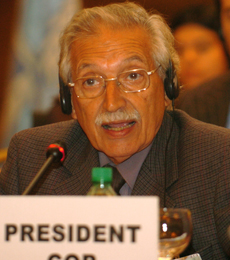 |
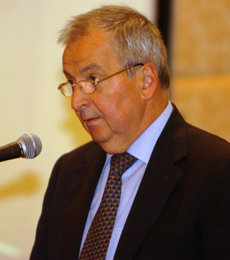 |
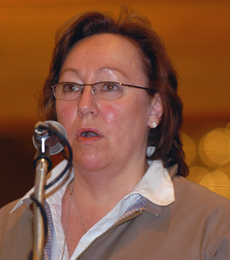 |
|||||
| Mariano Arana, Uruguay's Minister of Housing, Territorial Planning and Environment, opened the high-level segment. | Klaus Toepfer, UNEP Executive Director, stressed the importance of multilateralism and building synergies between environmental agreements. | Sheila Watt-Cloutier, Inuit Circumpolar Conference, said the Arctic is like a "canary in a coal mine" and a barometer of environmental health. | |||||
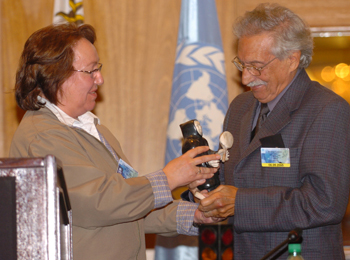 |
 |
||||
| Watt-Cloutier presents an Inuit carving of a drum dancer to COP President Arana, symbolizing the connectivity between the North and the South. | The drum dancer, carved by a Canadian indigenous artist. | ||||
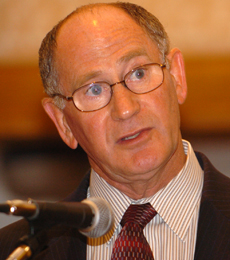 |
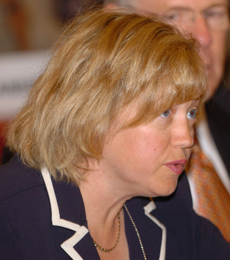 |
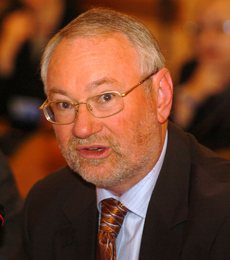 |
|||||
| Leonard Good, Chairman and Chief Executive Officer, Global Environment Facility (GEF), highlighted GEF's activities in the POPs focal area. | Anne Daniel, Canada, presented the report of the legal and administrative working group. | Mark Hyman, COW Chair, presented the report of the COW. | |||||
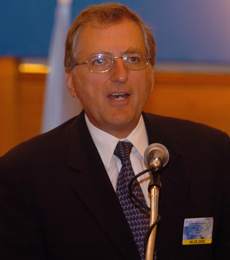 |
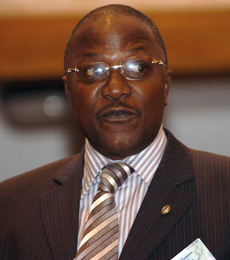 |
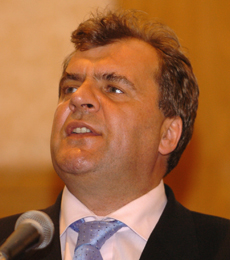 |
|||||
| Philippe Roch, State Secretary, Swiss Agency for the Environment, Switzerland, committed to continuing support for implementation measures. | Cheick Abdel Kader Sangare, Minister of Environment, Guinea, stressed problems of open burning, cleanup of PCB wastes, and the need to strengthen national rules. | Zoran Sapurik, Minister on Environment and Physical Planning, Macedonia, urged delegates not to allow "another spring to be silent." | |||||
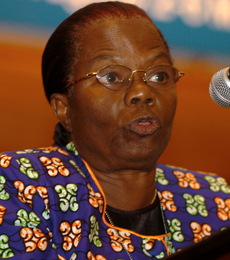 |
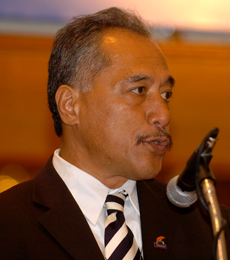 |
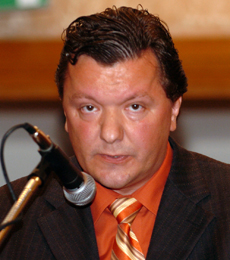 |
|||||
| Angele Gnonsoa, Ministre de l'Environnement, Côte d' Ivoire, said chemicals are essential to economic and social development, even if they are a growing threat to health and the environment. | Tuisugaletaua Sofara Aveau, Minister, Ministry of Natural Resources, Environment and Meteorology, Samoa, noted that 2005 is the Pacific Year of the Waste, and noted that safe disposal and cost-effective treatment of waste is a regional priority. | Peter Stanko, State Secretary, Ministry of Environment, Slovakia, noted Slovakia was one of the first countries to develop a proposal for a NIP, and highlighted the positive role of UN institutions in this process. | |||||
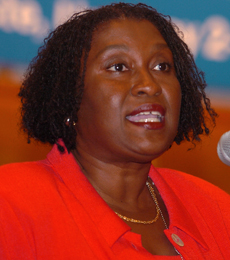 |
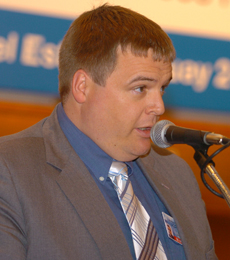 |
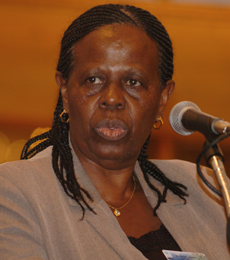 |
|||||
| Elizabeth Thompson-McDonald, Minister of Housing, Lands, and Environment, Barbados, said POPs were a very real concern for the people of the Caribbean, and called on Parties to make the Stockholm Convention a success by using global cooperation to address a global problem. | Colin Church, Deputy Director, Climate, Energy, and Environmental Risk, European Union, underscored the importance of a sound financial mechanism to ensure that support to developing countries materializes. | Rejoice Mabudafhasi, Deputy Minister, Department of Environmental Affairs and Tourism, South Africa, highlighted plans to finalize South Africa's NIP in 2005. | |||||
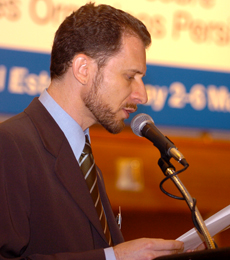 |
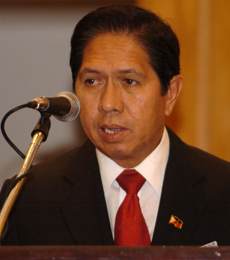 |
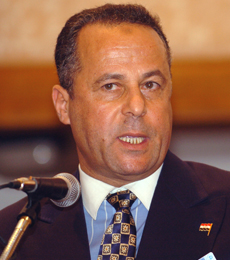 |
|||||
| Claudio Roberto Langone, Environment Deputy Minister, Brazil, expressed interest in hosting a regional center of the Stockholm Convention. | Demetrio Ignacio, Under Secretary, Department of Environment and Natural Resources, the Philippines, praised progress made at COP-1 towards realizing the promise of the Stockholm Convention. | Moussa Ibrahim Moussa, Deputy Minister, Ministry of State for Environmental Affairs, Egypt, called on donor countries to provide support for technical assistance and capacity building to enable developing countries to implement the Stockholm Convention. | |||||
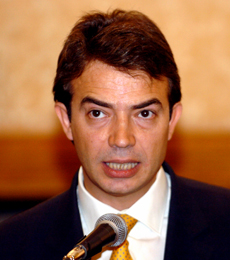 |
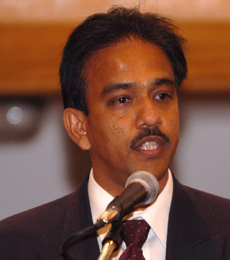 |
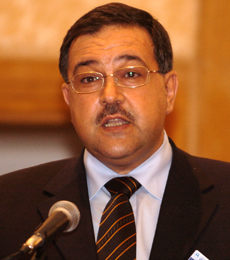 |
|||||
| Arturo Gonzalo Aizpiri, Secretary General for the Prevention of Pollution and Climate Change, Spain, pledged 100,000 Euro for the implementation of the Stockholm Convention, and emphasized the need to apply the substitution principle. | S. Sothinathan, Deputy Minister, Ministry of Natural Resources and Environment, Malaysia, noted that caution should be exercised before including new POPs in the Convention, noting that assistance would be needed in order for developing countries to comply with new commitments. | Faris Aljunadi, Secretary General, Ministry of Environment, Jordan, noted the need to contribute to capacity building, public awareness and transfer of technology to eliminate the adverse effects of POPs. | |||||
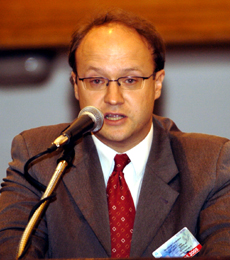 |
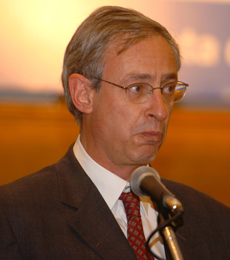 |
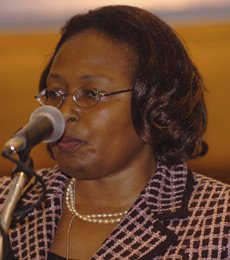 |
|||||
| Tomas Novotny, Deputy Minister of the Environment, Czech Republic, stressed the importance of the POPRC's role. | Francisco Giner de los Rios, Deputy Minister for Environmental Protection, Mexico, highlighted a prevention-based comprehensive approach to eradicate malaria without pesticides. | Explaining Kenya's sensitivity to illegal POPs imports in light of it's export-oriented agricultural production, Rachael Arungah, Permanent Secretary, Ministry of Environment and Natural Resources, Kenya, stressed the need for controls and enforcement measures at national borders. | |||||
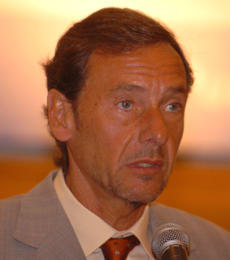 |
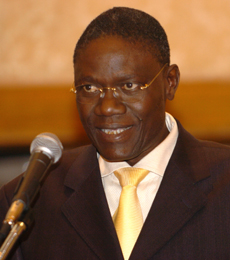 |
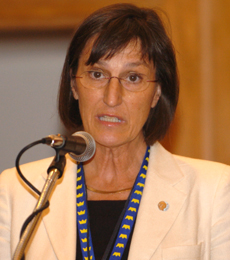 |
|||||
| Atilio Savino, Secretary of Environment and Sustainable Development, Argentina, invited delegates to take part in a meeting on environmental health and childhood scheduled for November in Argentina. | Mamadou Tall, Cabinet Director, Ministry of Environment and Nature Protection, Senegal, emphasized the vulnerability of developing countries to POPs due to their lack of technical and financial resources. | Viveka Bohn, Ambassador, Ministry of Sustainable Development, Sweden, stressed the importance of the precautionary principle in preventing the release of new chemicals with POPs characteristics. | |||||
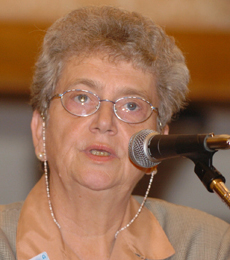 |
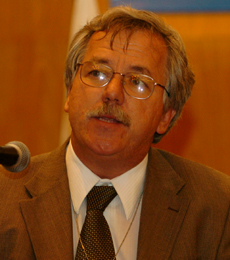 |
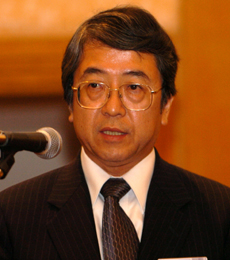 |
|||||
| Kerstin Leitner, Assistant Director-General, World Health Organization, stressed the importance of minimizing the harmful effects of POPs on human health, particularly for children. | Steve Gorman, GEF Executive Coordinator, World Bank, drew attention to the relationship between environmental degradation and poverty alleviation. | Masaki Fukui, Councillor, Ministry of Environment, Japan, stressed the need for global action on POPs. | |||||
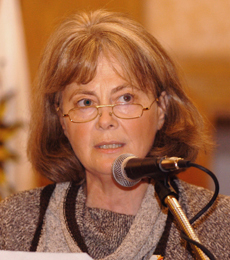 |
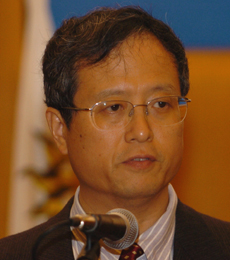 |
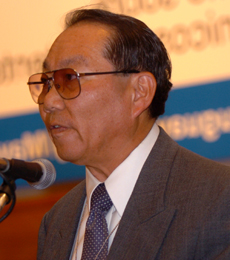 |
|||||
| Karen Craft Sloan, Ambassador, Foreign Affairs, Canada, applauded the Stockholm Convention for maintaining transparency. | Yue Rusheng, Deputy Director, Department of International Organization, SEPA, China. | Apichai Chvajarempun, Director General, Pollution Control Department, Thailand, expressed commitment to complying with the Stockholm Convention. | |||||
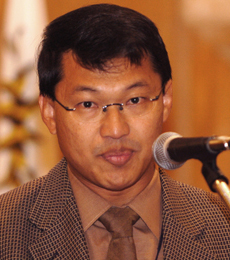 |
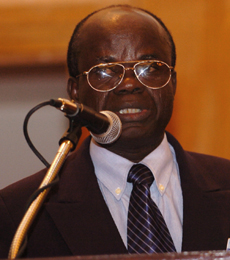 |
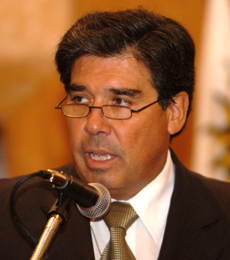 |
|||||
| Hazri Hassan, Deputy Director, International Relations Division of Ministry of Environment, Singapore, expressed the intent to ratify both the Stockholm Convention and the Rotterdam Convention in the next few weeks. | Ouro-Djeri Essoure, Director of Cabinet of the Ministry of Environment, Togo, described efforts towards the elaboration of a NIP. | Carlos Appelgren, Ambassador, Embassy of Chile in Uruguay, said his country ratified the Stockholm Convention in January 2005, and the NIP is nearly completed. | |||||
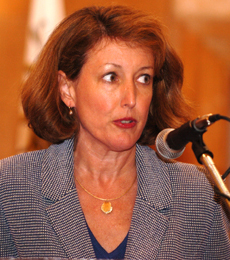 |
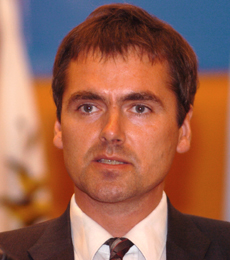 |
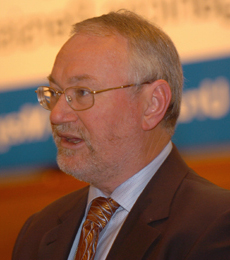 |
|||||
| Claudia McMurray, Deputy Assistant Secretary, State Department, United States, emphasized the Convention's ratification was of high priority and hoped that the US would be a Party by COP-2. | Henrik Hallgrim Eriksen, Senior Advisor, Ministry of the Environment, Norway, stressed the high costs of cleaning POPs pollution, called for precautionary action, and explained it would be very costly to delay action on POPs. | Mark Hyman, Assistant Secretary, Department of the Environment and Heritage, Australia, highlighted Australia's innovative role in developing new POPs destruction technologies. | |||||
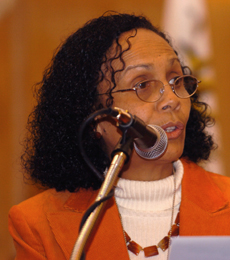 |
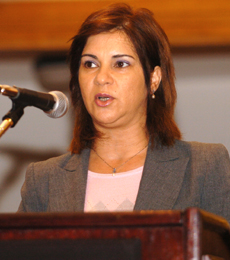 |
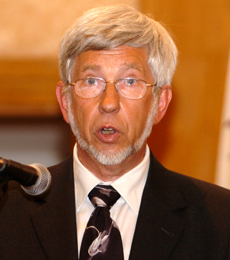 |
|||||
| Maria Urbaneja, Ambassador, Embassy of Venezuela in Uruguay, reported that accession instruments were deposited on 19 April 2005, and highlighted Venezuela's recent destruction of obsolete pesticides. | Rajae Chafil, Central Director, Minister of Land, Water and Environmental Management, Morocco, drew attention to the Rabat Declaration on the Environmentally Sound Management of Unwanted Stocks of Hazardous Wastes. | Wilfried Mahlmann, Head of Environmental Health and Chemicals Safety Directorate, Germany, supported the identification, evaluation and inclusion of additional POPs. | |||||
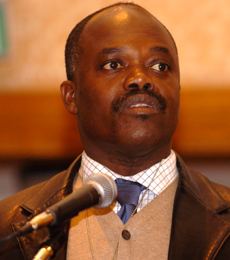 |
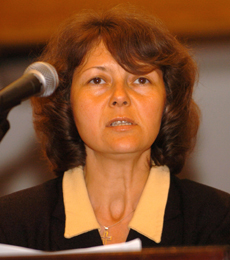 |
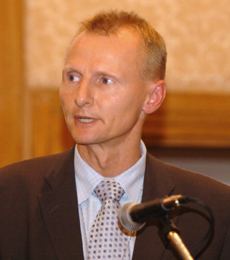 |
|||||
| Larsey Mensah, Ministry of Environment and Science, Ghana, endorsed the strengthening of synergies between the Rotterdam, Stockholm and Basel Conventions. | Mariana Ghineraru, Ministry of Environment and Water Management, Romania, called upon delegates to “think globally and act locally” for present and future generations. | Per Nylykke, Head of International Department, Ministry of Environment, Denmark, supported the addition of POPs proposed by Mexico, Norway and the EU. | |||||
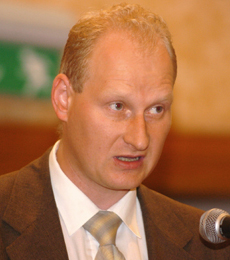 |
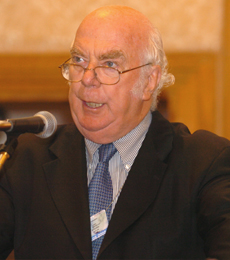 |
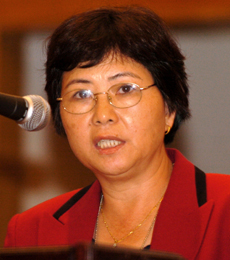 |
|||||
| Dmitry Zorin, Third Secretary, Permanent Mission of Belarus to the UN Office in Geneva, thanked GEF for its financial support, and highlighted the need for safe storage and remediation of products containing POPs wastes. | Marcel Boisard, Executive Director, UNITAR, said UNITAR has developed capacity building programmes and training on chemicals management, including POPs-related issues. | Sin Lan Ng Yun Wing, Director, Department of Environment, Mauritius, emphasized the need to consider the special situation of small island developing states. | |||||
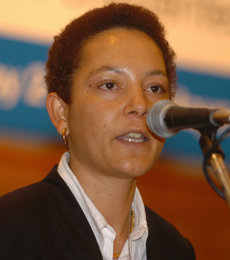 |
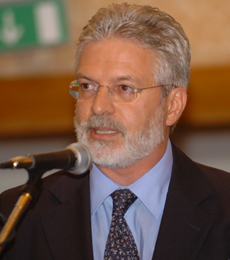 |
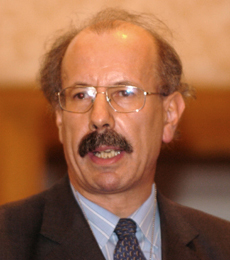 |
|||||
| Donata Rugarabamu, Basel Convention, promoted cooperation among conventions. | Pablo Mandeville, Resident Representative in Uruguay, UNDP, highlighted links between chemicals management and achieving the Millennium Development Goals. | Sidi Menad Si Ahmed, Director, Multilateral Environmental Agreements Branch, UNIDO, said private and public sector institutions in developing countries and countries with economies in transition face several constraints that require technical and financial support at the national and regional level. | |||||
| Evening Session of the Committee of the Whole (COW) | ||
 |
|||
|
From left to right: Fatoumata Ouane, Secretariat, Mark Hyman, Chair of the Committee of the Whole (COW); and John Buccini (Acting Executive Secretary).
|
|||
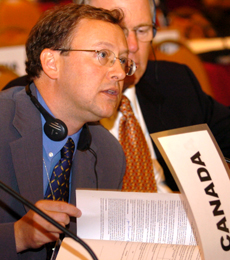 |
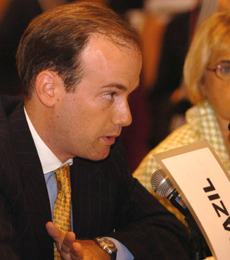 |
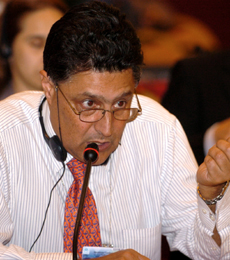 |
|||||
| Canada presented a draft decision establishing an experts group on the guidelines for best available techniques and best environmental practices (BAT/BEP). | Raphael Azeredo, Brazil, called for an increase in numbers from Latin America and the Caribbean in the expert group. | Tabaré Bocalandro, Uruguay, objected to the imbalance in the regional representation in the BAT/BEP expert group. | |||||
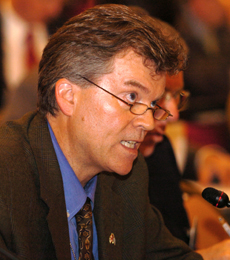 |
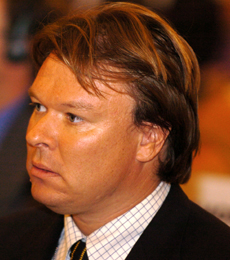 |
||||
| Russel Shearer, Canada, proposed recognizing the need to establish an effectiveness evaluation panel. | Sergio Vives Pusch, Chile, proposed deleting references to a global coordinating group for monitoring and effectiveness evaluation. | ||||
|
Relevant Links
|
|||
|
|
|
|
|
|
|||||
|
|
|
|
